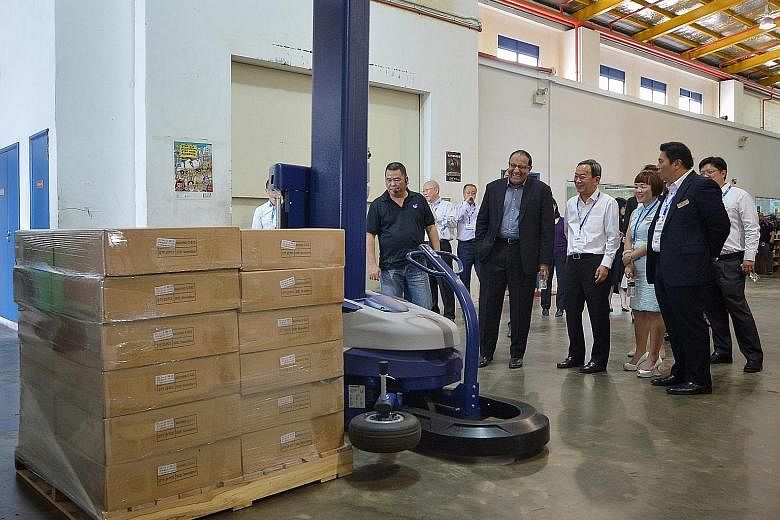Getting more small and medium-sized enterprises (SMEs) to think about going abroad is the Government's core challenge rather than dishing out more new programmes, Minister for Trade and Industry (Industry) S. Iswaran said yesterday.
Ahead of the Budget, some SMEs had asked for more assistance with their internationalisation efforts, especially monetary support.
But with one modest exception, there were no additional measures of this type announced last Thursday by Finance Minister Heng Swee Keat.
The exception was the extension of the Double Tax Deduction for International scheme - which covers expenses for activities such as overseas business development and investment study trips - to 2020.
"It is not about the schemes - the number of schemes or the range of the schemes per se - but it is about ensuring that our companies understand and undertake the internationalisation decision," Mr Iswaran said.
Once firms decide to venture abroad, they may need help getting market access or talent to help support their overseas strategies.
But there is already a range of programmes on offer to help firms in these areas. It is more a matter of helping them better utilise the programmes, he said.
"Along the way, if we receive feedback that there are gaps or the need for variations, then our government agencies are always willing to listen and adapt the programmes to meet those needs as we have done over time in a range of efforts," he said.
Mr Iswaran was speaking to the media on the sidelines of an event organised by the Workforce Advancement Federation (WAF) at its chairman Chan Chong Beng's interior furnishing firm Goodrich Global.
He lauded the SME for having successfully navigated the internationalisation strategy over 30 years.
Today, Goodrich has more than 30 offices in Singapore, China, Hong Kong, India, Indonesia, Malaysia, Thailand and the United Arab Emirates.
At the event, Mr Chan told 50 other fellow SME bosses that he had ventured into Kuala Lumpur in 1985 out of necessity, for the market in Singapore was too small.
"If I don't have enough purchases, I cannot have any meaningful influence over my suppliers," he said.
Growing and retaining talent was another key reason for the move. He cited the example of his managing director in charge of the Hong Kong and China market, as well as his general manager in Dubai.
"I know that I cannot satisfy them by stationing them in Singapore. They are looking for bigger roles and bigger things in life."
Mr Iswaran said internationalisation could be one way for SMEs to attract local talent to join them.
By nature, SMEs offer an "interesting career option" as their employees are exposed to a whole gamut of functions and business activities right from the start.
And when this includes going overseas to set up a plant, or developing strategies for a new market, it could add to the unique value proposition SMEs offer to Singaporeans in the workforce.
SEE FORUM


